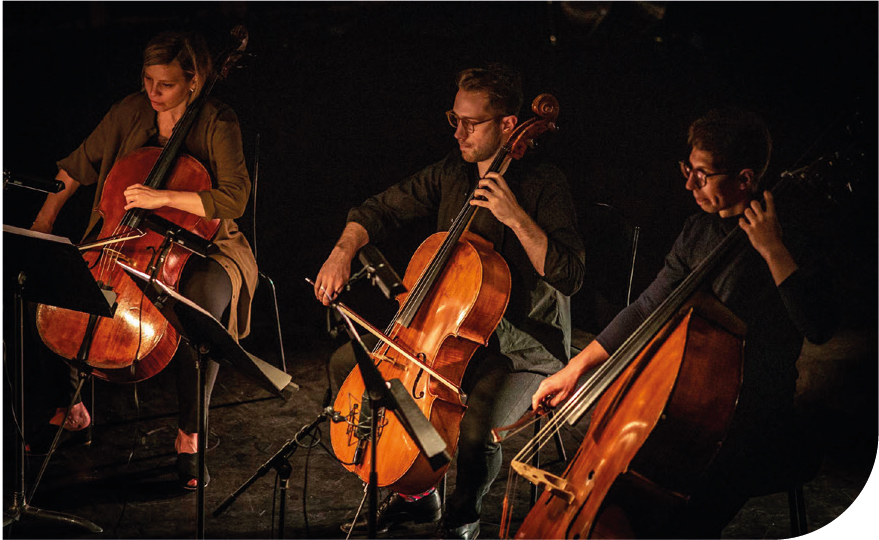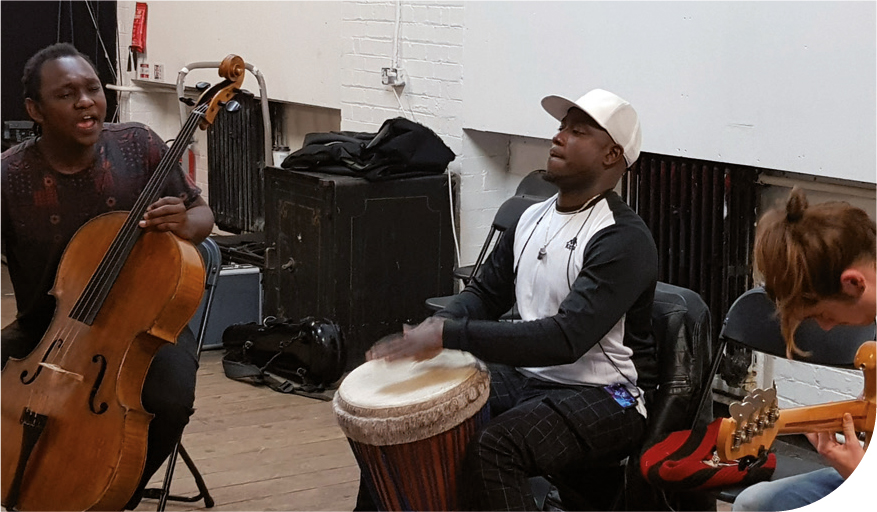
A new generation of brilliant artists and educators is reshaping what it means to be a classical musician, breaking down boundaries and exploring thrilling new ways of connecting with school children at a time when it is greatly needed. Many are focusing their outreach efforts on looking beyond the immediate and towards a child's future plans, whether in further education or their career. In this article, I'll explore three initiatives which are addressing how they can support music education in schools, each with a wider network to support those interested in pursuing music both in school and beyond.
Music Masters
For over 10 years, Music Masters has provided high quality music education at the very start of a young person's education by partnering with schools in some of London's most disadvantaged boroughs. Now a national initiative, it offers children musicianship classes and up to three instrumental lessons per week at very subsidised prices. Following the initial introduction to musicianship and lessons which are available to all, pupils can then elect if they wish to continue with the programme throughout their time at school. During these remaining years at primary school, as well as the weekly instrumental lessons, they are offered workshops with leading musicians such as Nicola Benedetti, Sheku Kanneh-Mason, the Harlem Quartet, and Marin Alsop, to name just a few. Kanneh-Mason will be visiting Jessop Primary School later in January.
The role of these musical ambassadors is to design and lead a programme of musical activity for the pupils, using their own practices as inspiration. This focus on a shared creative project allows relationships and confidence to flourish over an extended period, creating deep-rooted inspiration for everyone involved.
Other projects over the years have seen selected ‘Pathways’ pupils performing at the Wigmore Hall; Year 5 pupils performing with the BBC Symphony Orchestra at the BBC Proms in 2018 with a specially commissioned work by John Barber, and an annual collaboration with the BFI London Film Festival which sees pupils exploring the possibilities of creating new sounds with their instruments to make music for film. Music Masters believes that being a well-rounded musician means engaging with creative music making, such as composition, improvisation and performance from a young age.
From Year 6, young musicians in the Partner Schools begin the transition into the ‘Champions’ programme. They participate in workshops developing skills in public speaking, event design, and planning and are encouraged to think about the next steps of their musical journey: a scholarship place at a secondary school, or a bursary to a junior conservatoire and holiday courses in partnership with outstanding music organisations. The aim is to lay the foundations for skills they will need in their future experiences as musicians and as members of their community.
The Musicologist
Targeting slightly older students, university professor Matt Lawson is on a mission to bridge the gap between classroom teaching in secondary schools and the more independent thinking required at university level.
A senior lecturer in music at Oxford Brookes University specialising in music for the screen (film, television, video games), Lawson launched a YouTube channel during lockdown called ‘The Musicologist’. Containing online resources for Key Stage 3 and 4 students, the channel now has 130 educational videos and is accessed by followers from around the world. Lawson is taking his YouTube channel classes into schools, now with in-person teaching, to provide secondary music classes with a mixture of university-level taster lectures, and also the more general music education content from his videos in a live face-to-face situation.
These sessions are free of charge to the schools, as the work is carried out through the wider opportunities remit of Oxford Brookes University. However, this is Lawson's personal project, which he sees as a way of addressing the link between what students might do at school in music and what they might consider as a future career, or as a subject at university. Although Lawson's specialism is in further education, he is very aware that by engaging with students at a younger age (Years 7 and 8), they can be more inspired to take up the subject at GCSE level, and then at A Level. ‘Teaching about Film Music can certainly have that effect if it is pitched correctly,’ he says.
He is aware that recently many universities have adapted their entrance criteria, and many will accept UCAS points and portfolio submissions rather than the more widely recognised A Level results, particularly after the uncertainty with formal exams in the last few years.
Lawson has used the power of social media as a promotional tool for ‘The Musicologist’, again adapting quickly to the times, and believes that the high take-up from classroom teachers has been an indication of how much this resource is needed right now. Lawson says that the vocational opportunities demonstrated in his sessions can be inspiring to the young minds of a secondary-school aged pupil; added to that is the university-style method of teaching which encourages independent thinking. So far, Lawson has been very impressed by the responses of the students he's taught.

Members of Manchester Collective
Image: Vic Frankowski
Manchester Collective
Manchester Collective is a diverse group of professional musicians from all genres of music including classical string quartets, electro-acoustic music, and music of African origin. The group's performances include new commissions intertwined into programmes with music by Haydn, Copeland, Steve Reich and Bach.
This January the collective is starting a new programme of professional development with a year-long fellowship for professional string players at any stage in their career who are based in the North of England. The fellowship will begin by offering 12 musicians a fully funded 10-day residency at Rhosygilwen, in the heart of rural Wales. Following this residency, three participants will be selected to continue the Manchester Collective fellowship position for the duration of 2022 and will be involved with the current programme of events, including workshops with schools, conservatoires and universities.
‘The programme will certainly have a long-term legacy, and the intention is that participants, as well as current members of Manchester Collective, will be learning together and developing their skills. There is a lot of good research to suggest that continuing education of classical players is vital if they are to have careers that are sustainable, and this scheme aims in part to address this lack of ongoing training,' says Adam Szabo, chief executive of Manchester Collective.
Prior to the pandemic, Manchester Collective would regularly combine their evening concerts with an afternoon workshop for school-aged children. Without the need for pupils to bring instruments along, the professional musicians would naturally encourage the school pupils to find ways of expressing their musicianship through improvisation, body percussion, voice, and movement.
Abel Selaocoe and his trio Chesaba
A workshop led by South African-born cellist Abel Selaocoe and Chesaba, for example, would include skills such as listening, memory work and storytelling. Young musicians can learn that music is a story which is told to the audience, and they can learn how to tell that story through their own enjoyment of the music. Selaocoe is a cellist and composer, and through his music and his passion for passing on the history of his musical influences, he is a natural storyteller. Through his stories, the pupils also learn more about different cultural heritages and their influences on Selaocoe's own music and performances.
The year-long Manchester Collective residency has evolved so that future professionals can continue to grow their own practice as they work with the group to ensure a continuation of the strong tradition already laid down. Everyone can learn and continue to learn, maintaining the tradition of working together and learning from each other's shared experiences.
Like the other organisations working to broaden learners' horizons, nothing of what the Manchester Collective does exists in isolation. Szabo ends our conversation with this sentence: ‘The work that we do, we do together. It's our greatest strength, and it's how we can support the future of our sector.’








